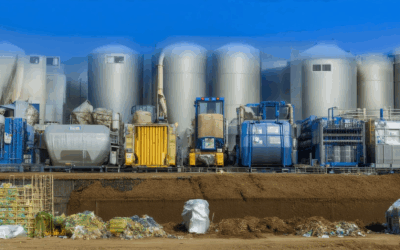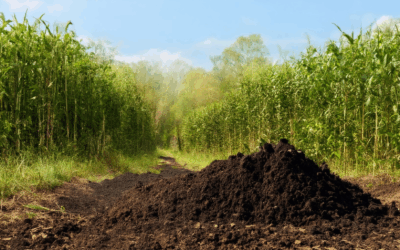The practice of biochar in soil conservation has emerged as a promising solution for enhancing soil health and sustainability in agricultural practices. As a versatile soil amendment, biochar offers numerous benefits that range from improving soil structure to boosting carbon sequestration efforts. While widely recognized for its positive impact on soil health, the use of biochar has also sparked some controversy, with questions surrounding its effectiveness and potential downsides. In this article, we delve into the key aspects of biochar in soil conservation, exploring both its advantages and the challenges it presents. By addressing these questions and controversies, we aim to provide a comprehensive understanding of how biochar can play a vital role in sustainable farming practices.

Disadvantages of Biochar in Soil
Biochar, while beneficial in many ways, does have some drawbacks when used in soil:
- High pH Levels: Biochar can increase soil pH, which may be problematic in areas where the natural pH is already high or in regions where acid-loving plants are cultivated.
- Nutrient Leaching: Excessive application of biochar can lead to nutrient runoff, as biochar may not always integrate fully into the soil structure, causing nutrients to wash away with water.
- Contamination Risk: If biochar is produced from contaminated materials, it can introduce harmful substances into the soil, potentially affecting plant growth and ecosystem health.
- Pest Attraction: Biochar’s carbon-rich nature can attract soil organisms and pests, which may require additional management to maintain balanced soil biology.
- Chemical Interactions: Biochar can interact with chemical fertilizers and pesticides, potentially reducing their effectiveness and complicating farming practices.
Controversy Surrounding Biochar
Biochar, a form of charcoal produced through pyrolysis of organic materials, has sparked debate due to several factors:
- Production Concerns: The high-energy process of pyrolysis raises questions about its environmental footprint, including greenhouse gas emissions and energy consumption.
- Effectiveness and Research Discrepancies: While some studies highlight biochar’s benefits for soil health, others question its efficacy, leading to scientific debates.
- Economic Accessibility: Production costs can be prohibitive, limiting widespread adoption, particularly in economically disadvantaged regions.
- Regulatory Issues: As a soil amendment, biochar must meet specific standards, and lack of regulation may lead to variability in product quality and marketing claims.
- Carbon Sequestration Doubts: The extent of biochar’s ability to sequester carbon and its accuracy in measurement are subjects of scrutiny.
- Sourcing and Ethics: Concerns about the suitability of materials used for biochar production, such as animal or human waste, and their proper handling before processing.
- Soil Impact Controversies: fears that excessive biochar use might disrupt soil ecosystems and affect nutrient availability.
- Public Perception and Opinions: Divergent views among experts, farmers, and environmentalists contribute to confusion and hesitancy regarding large-scale adoption.

What Does Biochar Do to the Soil?
Biochar significantly enhances soil health and functionality through various mechanisms:
1. **Improves Soil Structure**: Biochar increases soil porosity, allowing better water infiltration and airflow, which reduces soil compaction and enhances root penetration.2. **Enhances Nutrient Availability**: Rich in essential nutrients like potassium, phosphorus, and magnesium, biochar replenishes soil nutrients, reducing reliance on synthetic fertilizers.3. **Increases Soil Carbon Content**: By adding carbon to the soil, biochar improves water and nutrient retention, promoting plant health and growth.4. **Supports Microbial Activity**: Biochar provides a stable environment for soil microbes, encouraging decomposition and enriching the soil with humic acids.5. **Buffers Soil pH**: Biochar helps regulate soil pH, preventing acidity and enabling a broader range of crops to thrive.6. **Improves Water Infiltration**: Enhanced soil structure allows rainwater to infiltrate more effectively, reducing runoff and erosion.
Biochar’s multifaceted benefits make it a valuable tool for sustainable agriculture, supporting healthier plants and ecosystems while contributing to carbon sequestration efforts.

Can You Add Too Much Biochar to Soil?
Yes, adding too much biochar to soil can be counterproductive despite its many benefits. Here’s why:
- Nutrient Competition: Biochar’s high surface area grabs and holds nutrients, which can limit the availability of these nutrients for plants, leading to deficiencies.
- pH Balance Issues: Excessive biochar may alter soil pH, potentially making it less suitable for certain plants that thrive in specific pH ranges.
- Microbial Disruption: An overload of biochar can affect soil microbes, disrupting nutrient cycling and decomposition processes essential for soil health.
- Inproper Incorporation: Applying too much biochar at once may result in poor soil incorporation, leading to clumps or ineffective distribution.
- Type-Specific Effects: The texture and type of biochar can influence its impact. Fine-grained biochars may be more prone to causing nutrient imbalances when overused.
For optimal results, use biochar moderately and consider blending it with other organic materials to enhance soil health without overwhelming it. Proper application ensures benefits while avoiding potential pitfalls.
How Long Can Biochar Stay in the Soil?
Biochar’s longevity in the soil varies depending on several factors, including its production method, application technique, and environmental conditions. Generally, biochar is known to resist decay for a significant duration due to its stable aromatic structure, which makes it highly resistant to microbial breakdown.
On average:
- Biochar can persist in the soil for centuries to thousands of years , depending on the environment and conditions.
- Under normal agricultural practices, biochar may remain effective for 50 to 100 years before its beneficial properties diminish.
- In optimal conditions, particularly in regions with high temperatures and low rainfall, biochar can last much longer , sometimes exceeding a millennium.
The durability of biochar is attributed to its unique chemical structure, which prevents it from decomposing easily. However, over time, biochar can gradually break down, though this process is slow and may take centuries or more. During this breakdown, biochar continues to sequester carbon and improve soil health, providing long-term benefits even as its active phase winds down.
For optimal results, farmers and gardeners are advised to reapply biochar every few decades to maintain its effectiveness in enhancing soil structure and fertility. This approach ensures continuous benefits from its carbon-sequestering abilities and sustainable land management practices.
Learn more about the benefits of biochar and its production process by visiting our main website .

Do Worms Eat Biochar?
Worms, particularly earthworms like Lumbricus terrestris, do not actively eat biochar. While biochar-amended soils may attract earthworms due to improved soil structure and pH levels, the worms themselves do not consume biochar. Instead, they benefit from the enhanced soil conditions created by biochar.However, other soil amendments, such as compost or worm-friendly bedding, are more directly preferred by earthworms. These materials provide a better habitat and food source for the worms compared to biochar alone.
Conclusion
Earthworms do not eat biochar but are drawn to the altered soil properties it offers. Consider combining biochar with other amendments to maximize its benefits for both soil health and worm activity.




0 Comments